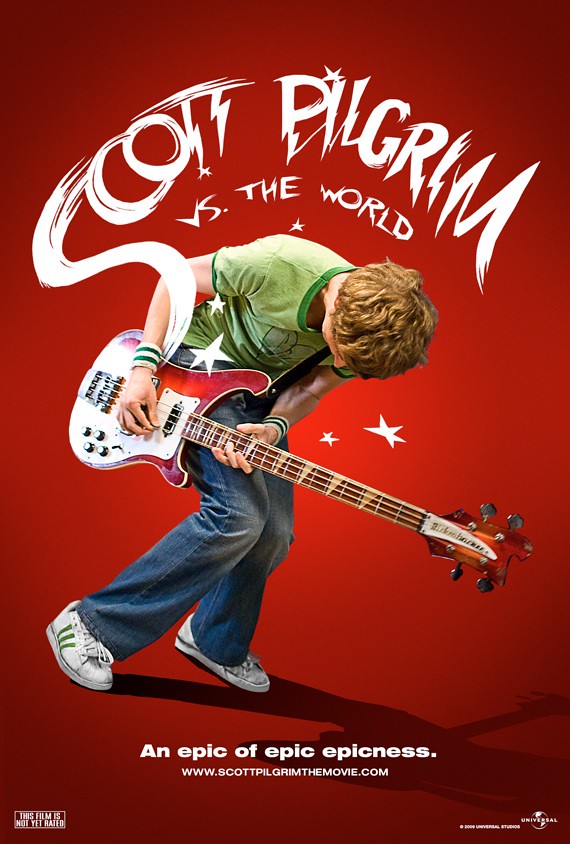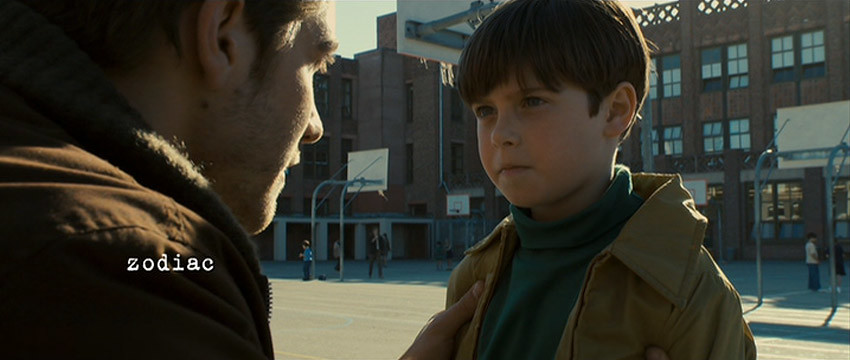
The actual watching of the movie has parts that move too fast and others that move too slow as it rushes excitedly to squeeze as much of a six-book story as it can into its two hour running time. The beginning especially feels a little manic, and I kept thinking, "If audiences don't know this story or these characters, won't they feel a little alienated by how rapidly we're breezing through characterizations and introductions?" But remembering the movie, the choppy rhythm and subplot onslaught smooths down and registers just fine, and I left the theater pretty happy with it, over all.
I know the books, having just finished the series last week (and delaying seeing the film -- sorry box office numbers -- until I had), so I can't say. The internet's calling this the Movie Of This Generation, comparing it to Fight Club. The epithet may be generous but it's certainly not totally without cause. It says a lot in its style and attitude, just like Fight Club did about the 90s, and it does so in a fun and original and vaguely zeitgeist-y way.
They did a pretty good job of keeping all that story in there, of making the manic video-game-fighting/punk-love/comic-geek thing come alive and keeping the heart-on-your-sleeve/idiot-in-love/dealing-with-your-demons themes front and center. The casting worked really well. On that note, I've got to admit I'm pretty burnt out on Michael Cera -- I like his onscreen personality but it's just the one onscreen personality and I can only take that so many times in a row -- but he mostly didn't disappoint here, except for playing some of the high-emotion scenes a little too deadpan (as usual). Actually, I'd say that, much like how I declared Kung Fu Hustle the end of the kung-fu genre (it's all the standard elements of the genre, times 100, blown to beautifully absurd extremes), so too should Scott Pilgrim be the end of the Michael Cera persona for the same reasons. Time to close a chapter, redefine yourself, and move on. Please, Mr. Cera.
My one major complaint about this film, though, which I can't leave without expounding on, is the end. In terms of being a manic 16-bit video-game love story with a face-paced tongue-in-cheek action ending, it ends well, but compared to the book I was pretty let down. See, in the comic series, up until Book 6, I considered the series cute, fun, and amusing. Light, fluffy, but with a lot of elements thrown together that really played well off each other and spoke to our generation. I didn't love it, but I totally liked it, and I saw the appeal. But then in Book 6, I suddenly got really excited, really into it, the end was such a big thematic climax, bringing in elements and plotlines I hadn't even paid much attention to, evolving characters and making the whole video-game-fight stuff and subspace-travel stuff into metaphors for how we all deal with crazy love, especially young crazy love. Book 6 really won me, and almost all of Book 6 felt rewritten (and rewritten well, but definitely not up to the original) for the film. All I can say is, hey everybody who loved this movie? Go read the books. Worth it!
Seen at the Regal Lloyd Cinema.
Sidenote: distressingly, this has been my longest dry spell between movies. It's been a hell of a month.



